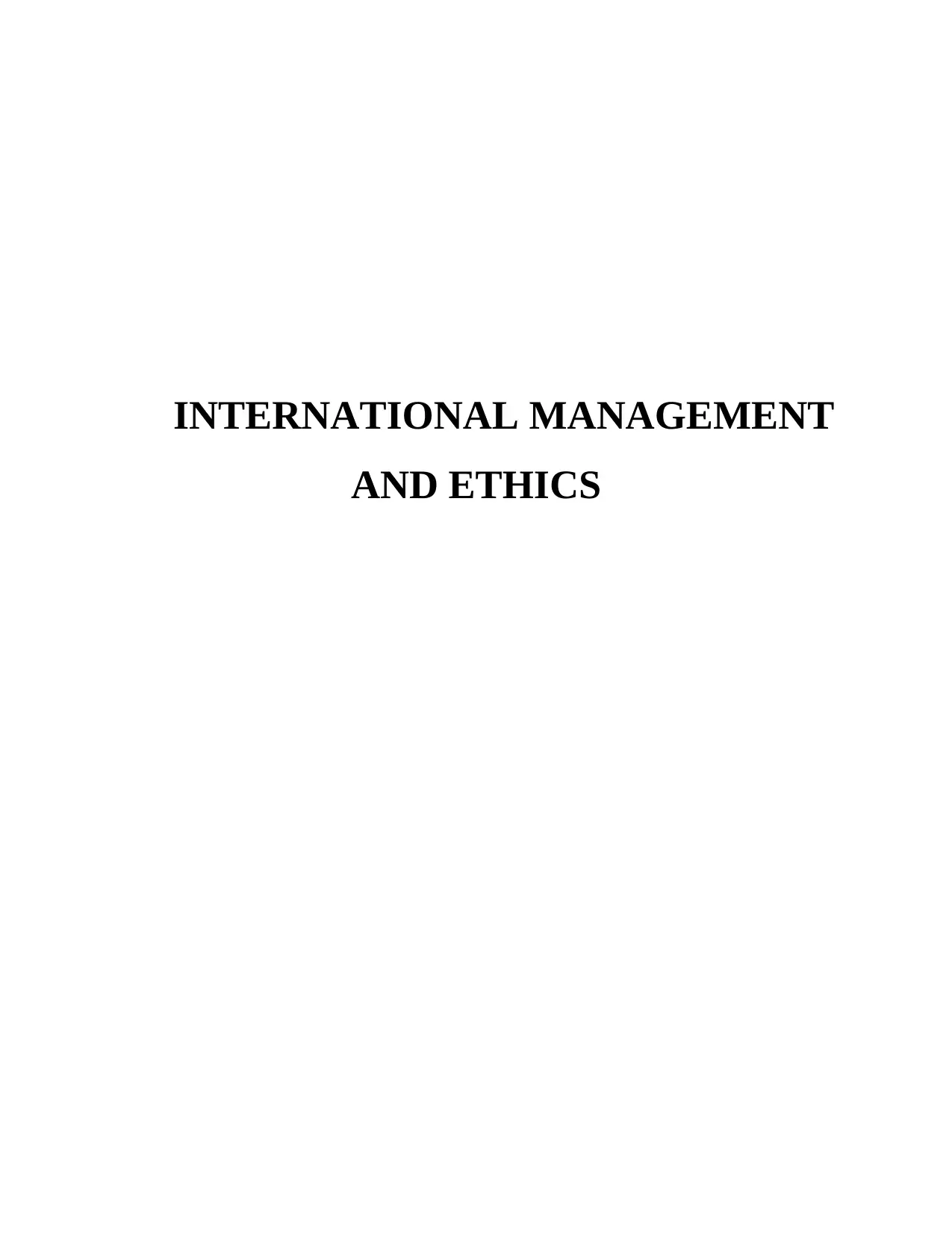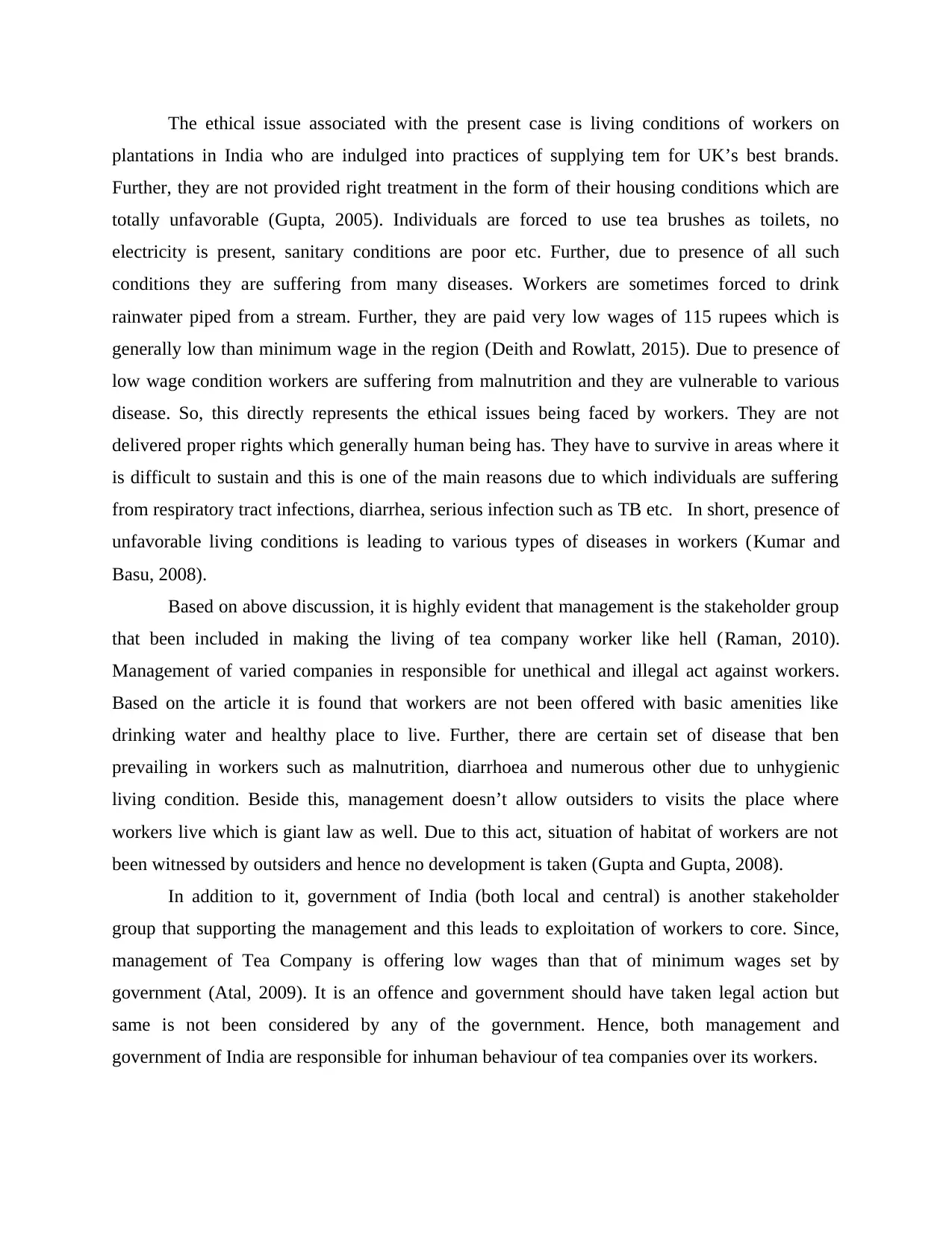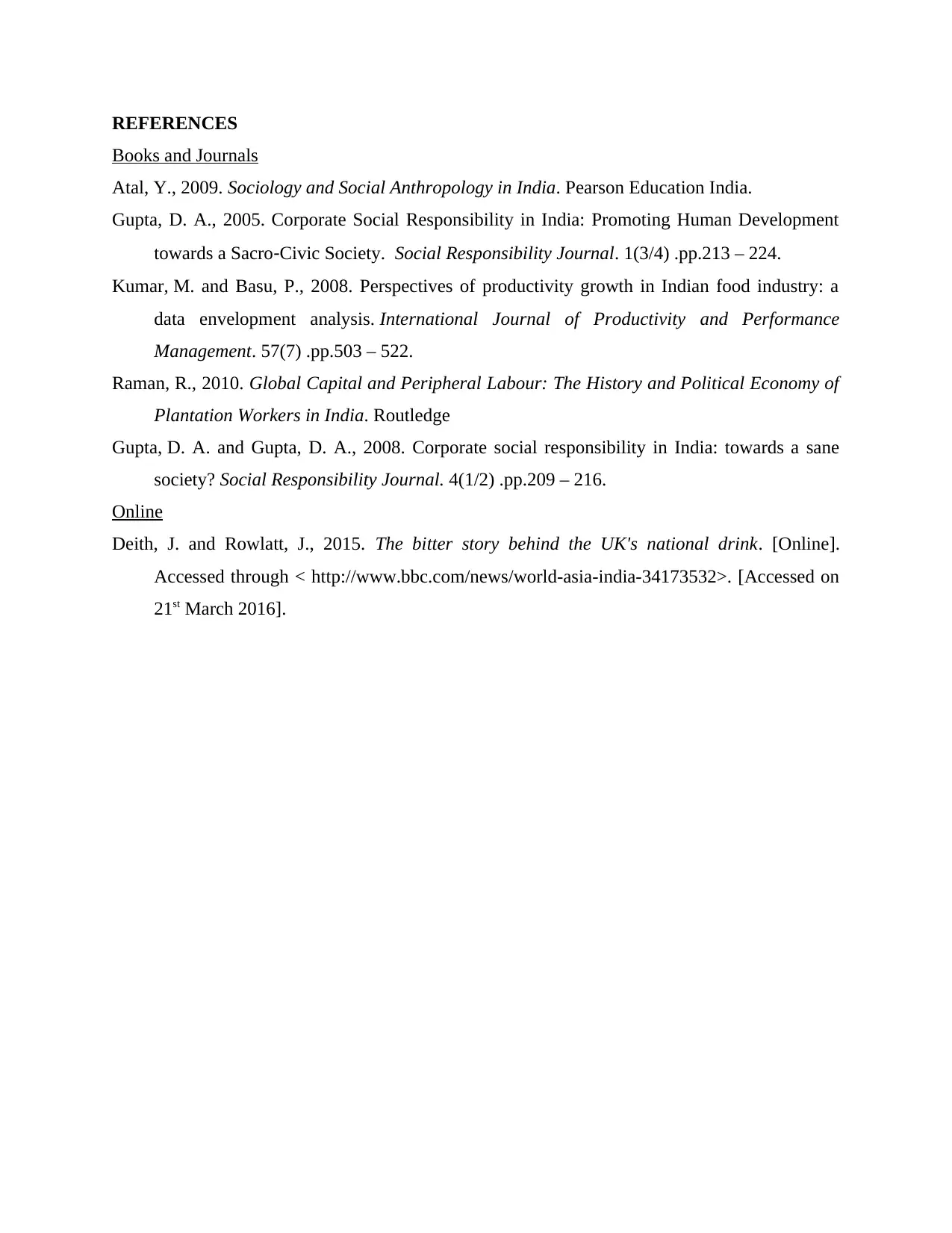MGMT301: Ethical Issues in International Management: A Case Study
VerifiedAdded on 2020/01/07
|3
|695
|265
Report
AI Summary
This report examines the ethical issues surrounding the living and working conditions of plantation workers in India, specifically those supplying tea to UK brands. The case study highlights the unethical practices of low wages, inadequate housing, poor sanitation, lack of electricity, and the prevalence of diseases among the workers. The report identifies management and the Indian government as key stakeholders responsible for these inhumane conditions, which include insufficient pay, lack of access to basic amenities, and the government's failure to enforce minimum wage laws and worker protections. The analysis references several academic journals and online sources to support the arguments and emphasizes the need for improved corporate social responsibility and government intervention to ensure fair treatment and living standards for the workers. The report concludes by underscoring the urgent need for ethical reforms within the tea industry to address worker exploitation.
1 out of 3





![[object Object]](/_next/static/media/star-bottom.7253800d.svg)